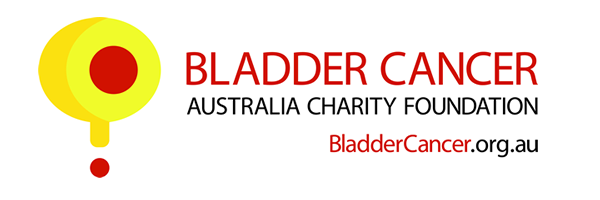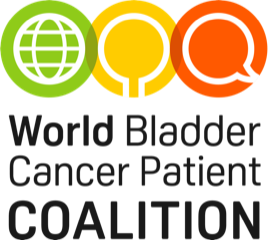BCACF Newsletter - December 2020
BCACF Newsletter - December 2020
As Christmas and the end of 2020 draw near, after our tumultuous COVID year, we thank the countless number of people all over Australia who have contributed to beating the virus. Of course health professionals and front line workers are first to mind, but every Aussie, and especially every Victorian, who made sacrifices to keep us safe need to be congratulated and thanked. Celebrating our great country, and our National pride, should be front and centre in the days ahead as we share festivities and holidays with family and friends. Addressing gender differences in bladder cancer diagnosis Men are diagnosed with bladder cancer at three times the rate of women. However, at the time of diagnosis women are more likely to have more advanced disease and worse overall survival, suggesting delay in diagnosis. Women presenting with blood in their urine are more likely to have repeated urine tests or initial treatment for presumed bladder infection rather than referral to a urologist. Recently, the American Urological Association have released updated guidelines for management of non-visible haematuria suggesting a risk stratified approach, with increased age and smoking history remaining to be the biggest risk factors for bladder cancer. It is important for patients and GPs to be aware of current guidelines and perform appropriate early investigations in order to avoid delay in diagnosis of bladder cancer, especially in women.
Can a virus help kill urothelial cancer? The Lancet has just published regarding a new treatment - Intravesical nadofaragene firadenovec. So what is it? Well it’s is a replication-deficient recombinant adenovirus that delivers human interferon alfa-2b cDNA into the bladder epithelium stimulating the immune system to ‘attack’ bladder cancer cells. In this trial it was being used as a novel intravesical therapy for BCG-unresponsive non-muscle-invasive bladder cancer. The new treatment was efficacious, with a favourable benefit:risk ratio, in patients with BCG-unresponsive non-muscle-invasive bladder cancer. This represents a novel treatment option in a therapeutically challenging disease state.
In summary, 55 (53·4%) of 103 patients with carcinoma in situ/CIS (with or without a high-grade Ta or T1 bladder tumour) had a complete response within 3 months of the first dose and this response was maintained in 25 (45·5%) of 55 patients at 12 months. Micturition urgency was the most common grade drug-related adverse event and there were no treatment-related deaths.
It is unavailable in Australia at present but watch this space. Congratulations to Prof Stephen Boorjian, Mehrdad Alemozaffar, Badrinath Konety, Neal Shore, Leonard Gomella, Ashish M Kamat and their team. What % of men return to a satisfactory sex life after Radical Cystectomy? In our survey of 154 males who had an RC with neobladder and 67 males who opted for an ileal conduit / stoma /bag, only 10 of 221 returned to a full sex life. 94 said they had no sex life after their surgery. 50 men in the sample group stated they could still have strong orgasms, but only 3 stated they could attain a full natural erection. Approximately 40 men said they could have a serviceable erection using medications or sex aids.
Our surveys about RC surgery and life after RC have been very valuable to thousands of patients when making choices about their cancer treatment. You can view all of the survey results here. ORDER your Bladder Cancer Patient Guidebooks Please make sure your practice has enough Patient Guidebooks and Radical Cystectomy booklets before the holidays. We have good stock of both booklets. Our procedure guides are also incredibly popular (download only) with many urologists using these every week to help patients prepare for their procedures. Latest World Bladder Cancer Patient Newsletter
WBCPC NEWSLETTER - November Issue 2020
This month, we are proud to have launched our brand new website. We hope worldbladdercancer.org will become a go-to-hub for communities affected by bladder cancer across the world. Together with our member organisations, we will work to create useful resources and information to support the growth and capacities of bladder cancer patient community worldwide.
The World Bladder Cancer Patient Coalition is proud to endorse the European Code of Cancer Practice (The Code). Launched recently by the European Cancer Organisation, The Code is a citizen and patient-centred statement of core requirements for good clinical cancer practice, to improve outcomes for all of Europe’s cancer patients.
Putting bladder cancer on the global health policy agenda
We have organised this report around three themes that drive the WBCPC strategy: Building Community, Raising Awareness, and Engaging in Advocacy, with two objectives: To be a resource that shares useful know-how, approaches, practices and ideas – to support all those building or strengthening bladder cancer patient groups in their country.
Fostering an international community of people affected by bladder cancer The World Bladder Cancer Patient Coalition strives to make sure that national bladder cancer patient organisations are strong enough to effectively support people affected by bladder cancer in each country, to elevate awareness and advocate for better diagnosis, treatment and care. Our network holds a wealth of experience in this area, and we are here to provide guidance and support to aid the work of national groups and individuals. Please share this guide with anyone who may find it helpful for local bladder cancer advocacy and support activites.
Dr Lydia Makaroff at The Economist World Cancer Series Europe 2020
Speaking at the event, Lydia stressed the urgent need to focus our investments on what matters to patients and involve patients right from the start when we conduct research and look to reduce inefficiencies in cancer care.
ESMO and IARC join forces to improve cancer care prevention worldwide The European Society for Medical Oncology (ESMO) has announced a collaboration with the WHO’s International Agency for Research on Cancer (IARC) to support them in the development of an online learning platform which integrates all research for cancer prevention in one easy-to-access point.
The World Cancer Report Updates learning platform will offer freely accessible learning material based on selected content from the World Cancer Report, the most important resource on cancer prevention published by the IARC every five years.
Capturing the impact of COVID-19 on (bladder) cancer patient organisations. Earlier this year, we have surveyed the impact of COVID-19 on our member organisations and members of a number of other international cancer patient organisations and alliances. The findings were presented at online conferences, and covered in a range of publications including the Lancet Oncology, CancerWorld, Patient View and others.
Six months on since publication of the report, we have set out to resurvey our members to find out an ongoing impact of COVID-19 on cancer patient organisation. The survey looks at what has happened, what started, what stopped, and what the major concerns are. By working together, we believe we can strengthen our messaging and calls to action. We will endeavour to share the findings so we can all learn from each other, and see from others what is working well, and what is not. The findings are expected to be launched in February 2021. This survey is for member organisations of WBCPC with a deadline of December 8th, 2020.
News from our member patient organisations News from our member bladder cancer patient organisations
France
Italy
This approach allowed patients to be more actively involved and participate in the management of the treatment process and therefore to play a role of primary importance both in the management of the therapeutic and care pathway and in the institutional and regulatory processes. It is precisely thanks to active involvement that more targeted and effective health policies can be implemented.
The meeting took place in two virtual rooms (NMIBC and MIBC) and facilitated discussions on urothelial carcinoma among the key stakeholders present. We've also helped raise public awareness and brought more attention to the challenges and complexities related to urothelial tumours, in the interest of current and future patients and more generally of all society.
United Kingdom To address this gap and provide both the NHS and patients with a valuable and easy to use resource, the charity has created a suite of ten booklets, which provide clear, accessible advice from medical specialists as well as first-hand tips and guidance from patients who have been through the same experiences. Unlike previous information sources, these Fight Bladder Cancer booklets have been designed in collaboration with patients and are broken into small bite-size chunks. Rather than one overwhelming monster directory, they cover each separate stage of a patient’s - from diagnostic tests to treatments, from living without a bladder to the impact on sex life, from nutrition to survival.
Bladder Cancer in the News
Systemic therapy in bladder preservation
The role of palliative radiotherapy in bladder cancer: a narrative review
How to tell if you have bladder cancer or something less serious
Intravesical nadofaragene firadenovec gene therapy for BCG-unresponsive non-muscle-invasive bladder cancer: a single-arm, open-label, repeat-dose clinical trial
Rationale and Outcomes for Neoadjuvant Immunotherapy in Urothelial Carcinoma of the Bladder
Antibody-drug conjugates make splash in bladder cancer
Did you know? If you have any suggestions for the news section, or our newsletter in general, make sure to send these to info@PROTECTED Important dates and events 11-13 February 2021
Meet our members
Have a great Festive Season!
The bladdercancer.org.au team |
|
- This mailing list is a public mailing list - anyone may join or leave, at any time.
-
This mailing list is announce-only.
Bladder Cancer Australia - International NeoBladder Survey - Ileal Conduit Survey
Privacy Policy:
See www.bladdercancer.org.au


